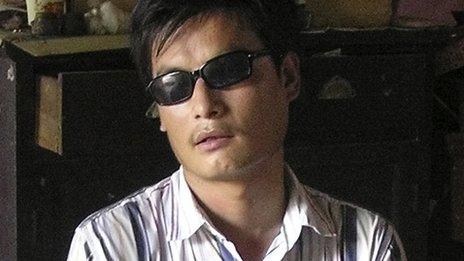Assange row: Hague says 'no solution in sight'
- Published

Julian Assange has been at the embassy since June in a bid to avoid extradition to Sweden
There is 'no solution in sight' to resolving the Julian Assange extradition row, Foreign Secretary William Hague has said.
His comment comes after meeting the vice-president of Ecuador - that country granted asylum to Mr Assange.
The Wikileaks founder is in Ecuador's London embassy fighting extradition to Sweden over sexual assault claims.
The South American country says Britain threatened to storm its embassy but the UK denies making any such threat.
Ecuador claimed Britain made the threats to seize Mr Assange - who remains inside the London building - after UK officials said a 1987 law allowed police to enter diplomatic premises.
Sensitive material
Ex-computer hacker Mr Assange's Wikileaks website has published leaked sensitive diplomatic cables involving various countries, including the US.
He has been at the embassy since June and says he fears being passed on to authorities in the US if extradited to Sweden.
The FCO says the UK has a legal obligation to extradite him to Sweden, and he will be arrested if he leaves the embassy.
Speaking to the BBC Radio 4's PM programme, Mr Hague stressed that the UK was not threatening to storm the Ecuadorian embassy - he said he was looking for an "amicable solution".
"We have stressed the legal position of the UK and I stressed that again yesterday to the vice-president [Lenin Moreno], that we are legally bound to arrest Mr Assange and extradite him to Sweden. There is no legal basis for us to do anything else.
"This may go on for a long time so we are not making a threat against the embassy of Ecuador," he said.
'Clear position'
Mr Hague said both countries had agreed that officials would continue to talk about finding a solution.
But he added: "Given Ecuador's position on what they call diplomatic asylum and our very clear legal position, such a solution is not in sight at the moment."
In 2010, two women accused Mr Assange of committing sexual offences against them while he was in Stockholm to give a lecture.
The Wikileaks founder says the sex was consensual and he regards the case as politically motivated.
In May, the UK Supreme Court dismissed Mr Assange's attempt to reopen his appeal against extradition and gave him a two-week grace period before extradition proceedings could start.
It was during that time that he entered Ecuador's embassy in London's Knighstbridge area.
The South American country announced it had granted Mr Assange asylum on 16 August, saying his human rights could be violated if he is sent to Sweden to be questioned.
- Published26 August 2012
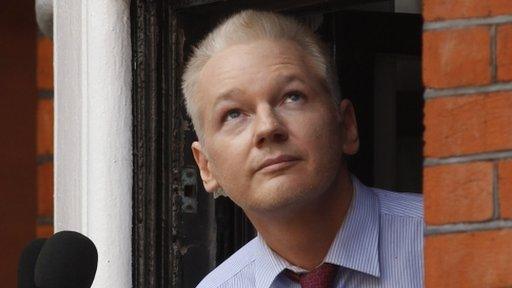
- Published24 August 2012
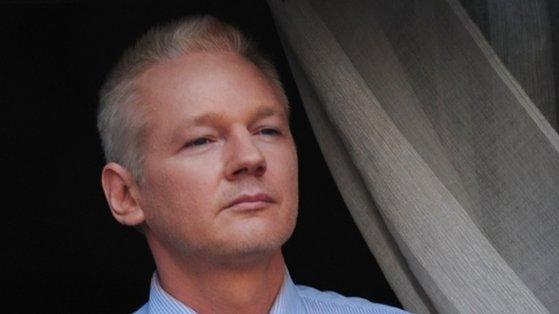
- Published21 August 2012
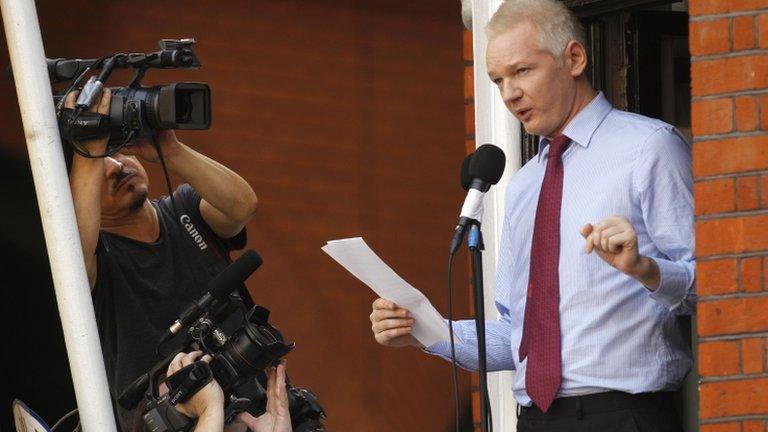
- Published21 August 2012

- Published20 August 2012
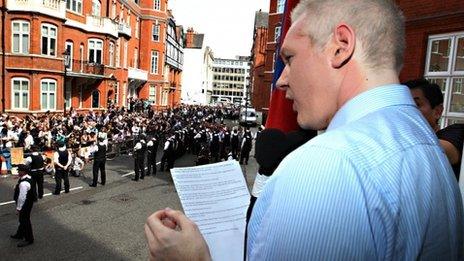
- Published20 August 2012
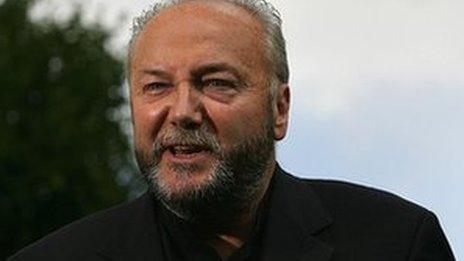
- Published20 August 2012
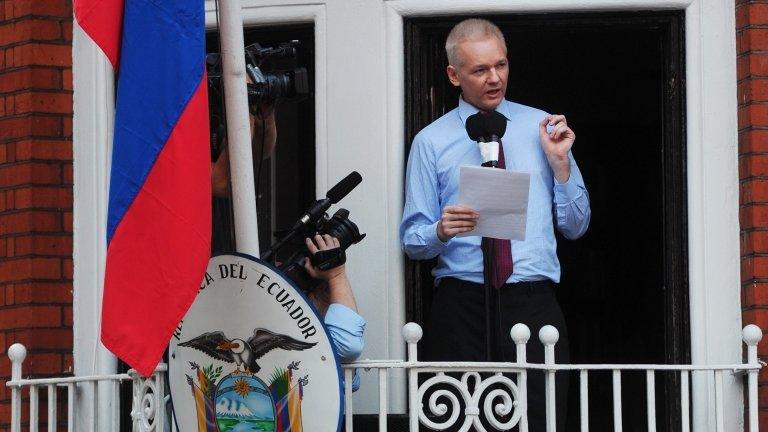
- Published20 August 2012

- Published25 June 2024
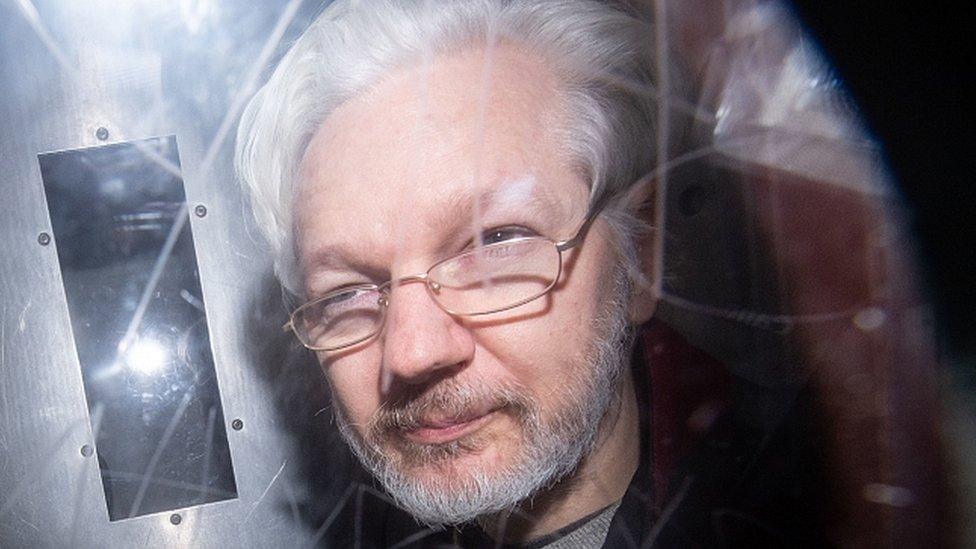
- Published16 August 2012
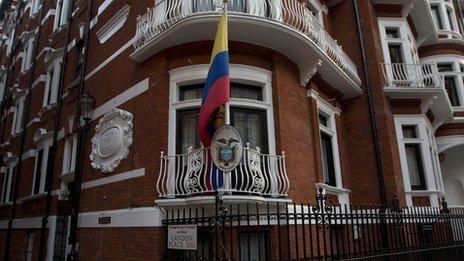
- Published18 August 2012
_afp.jpg)
- Published2 May 2012
